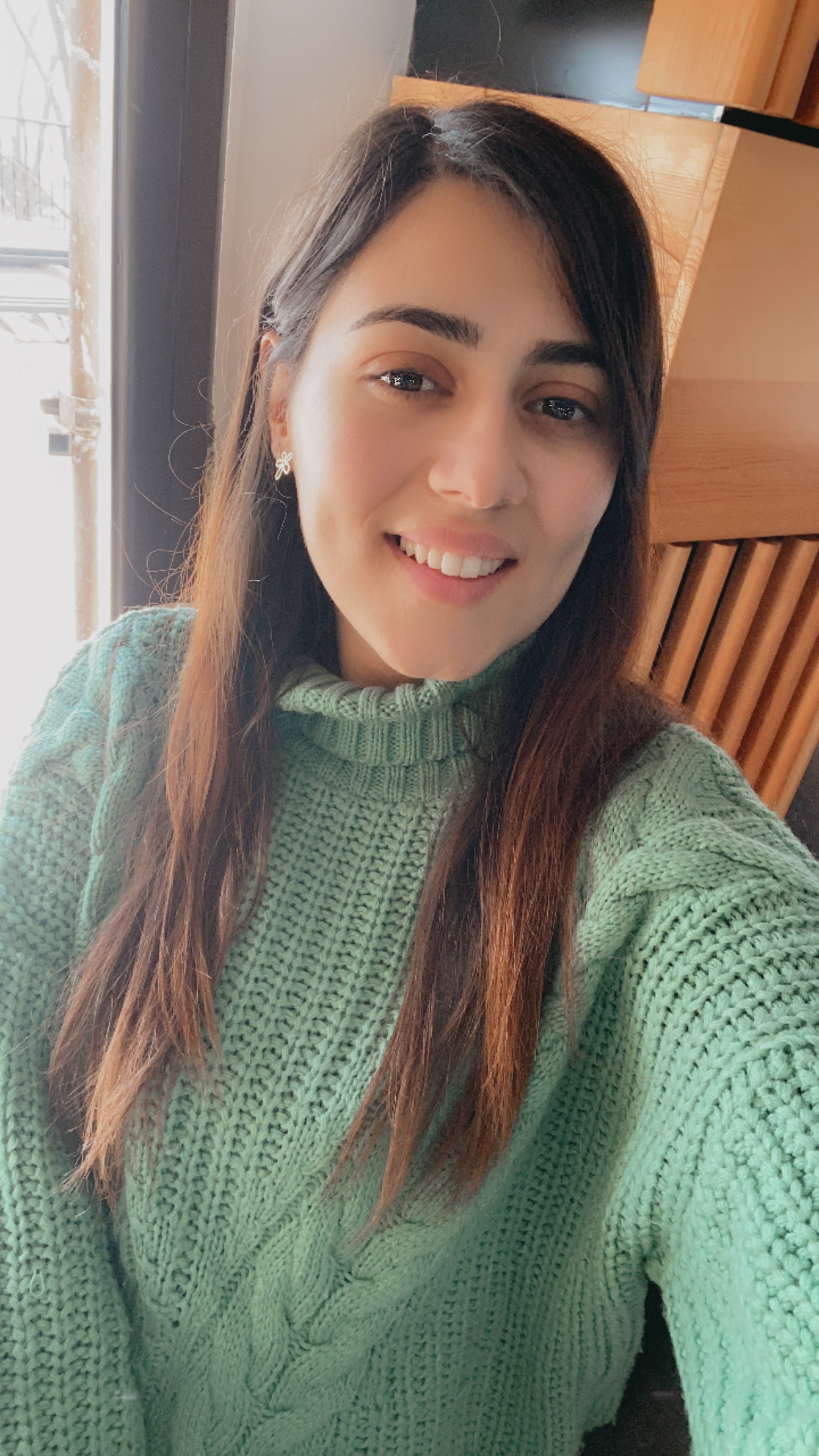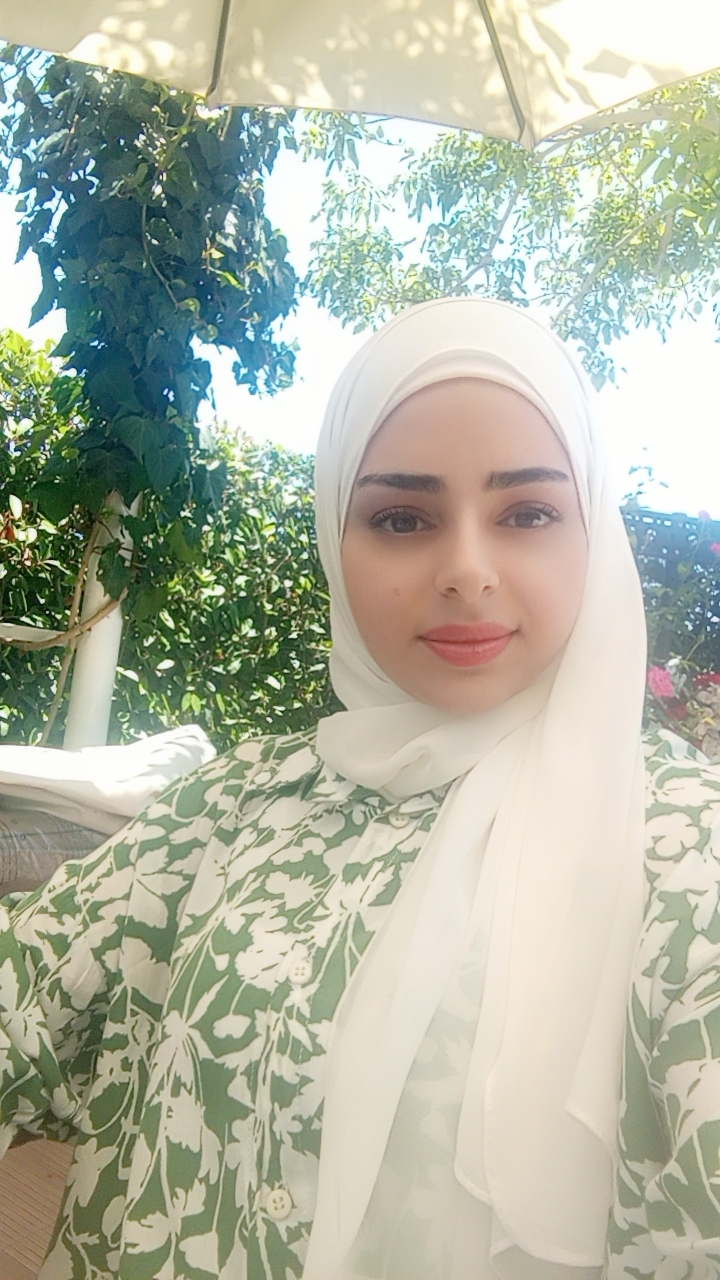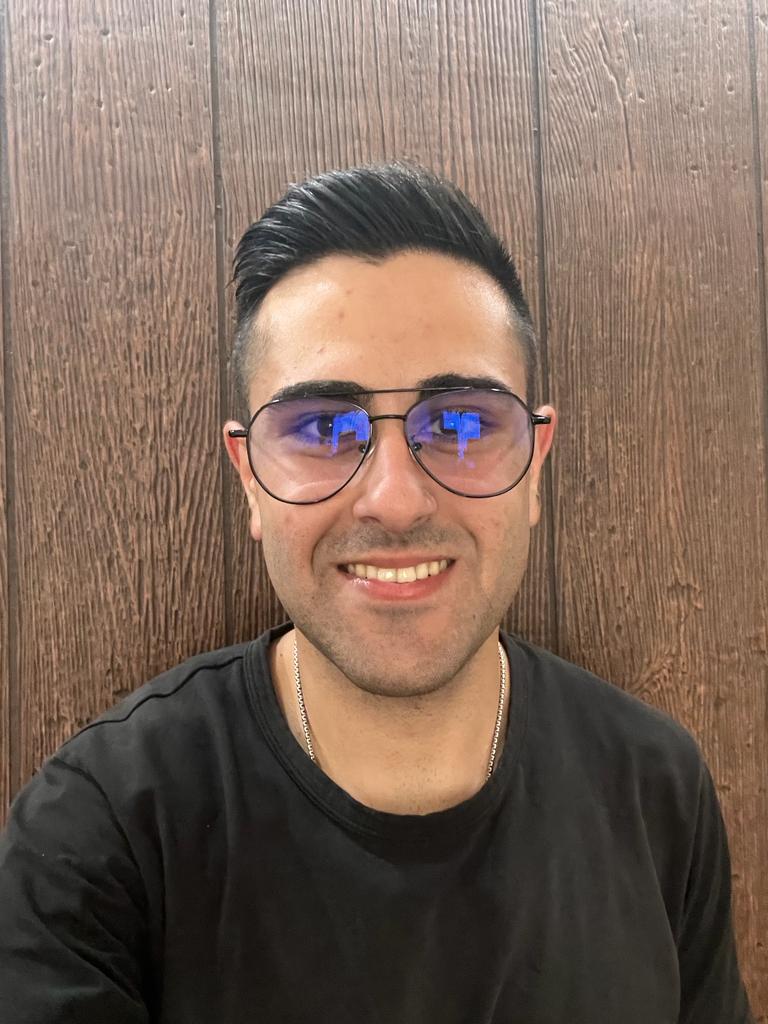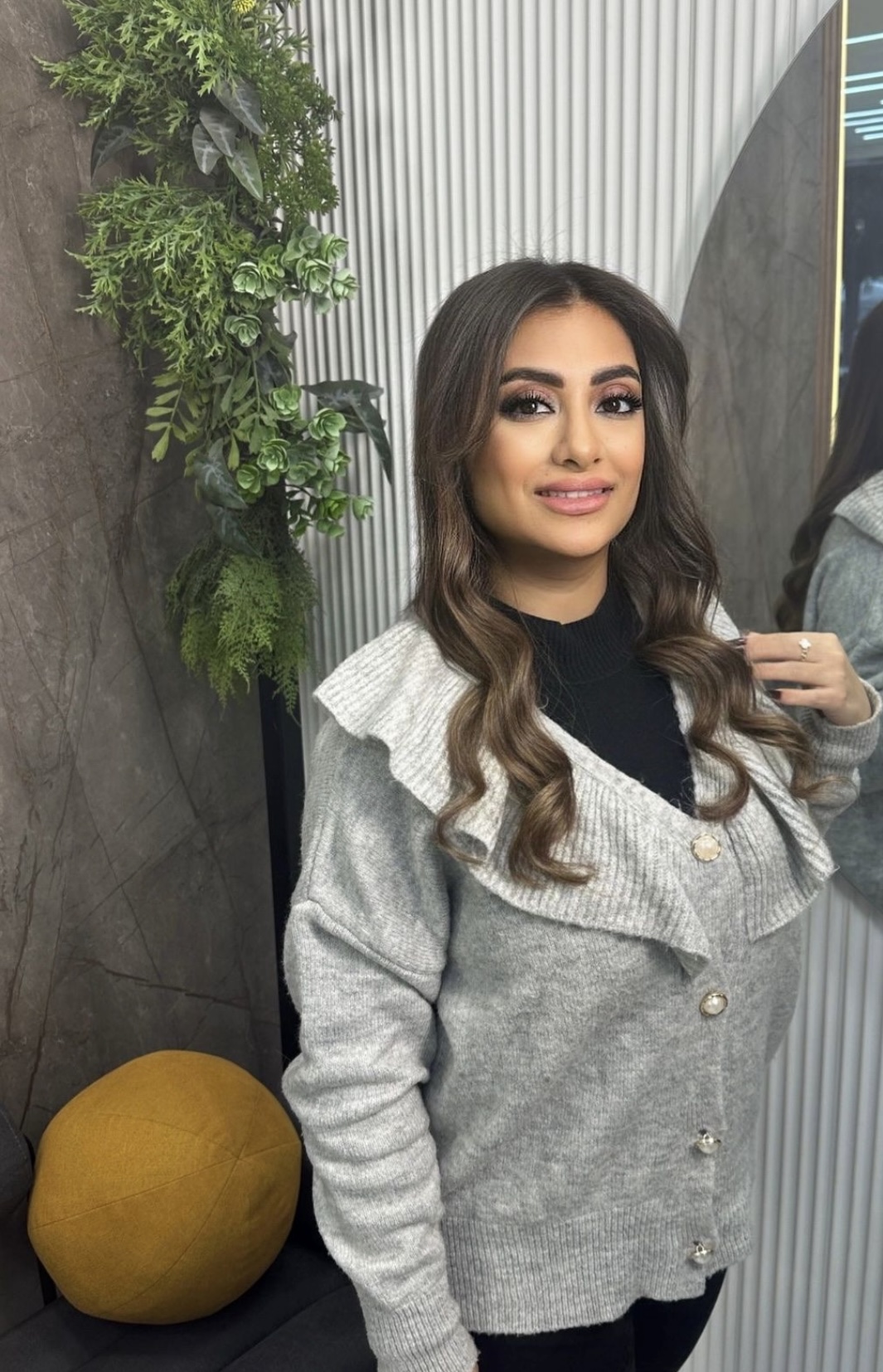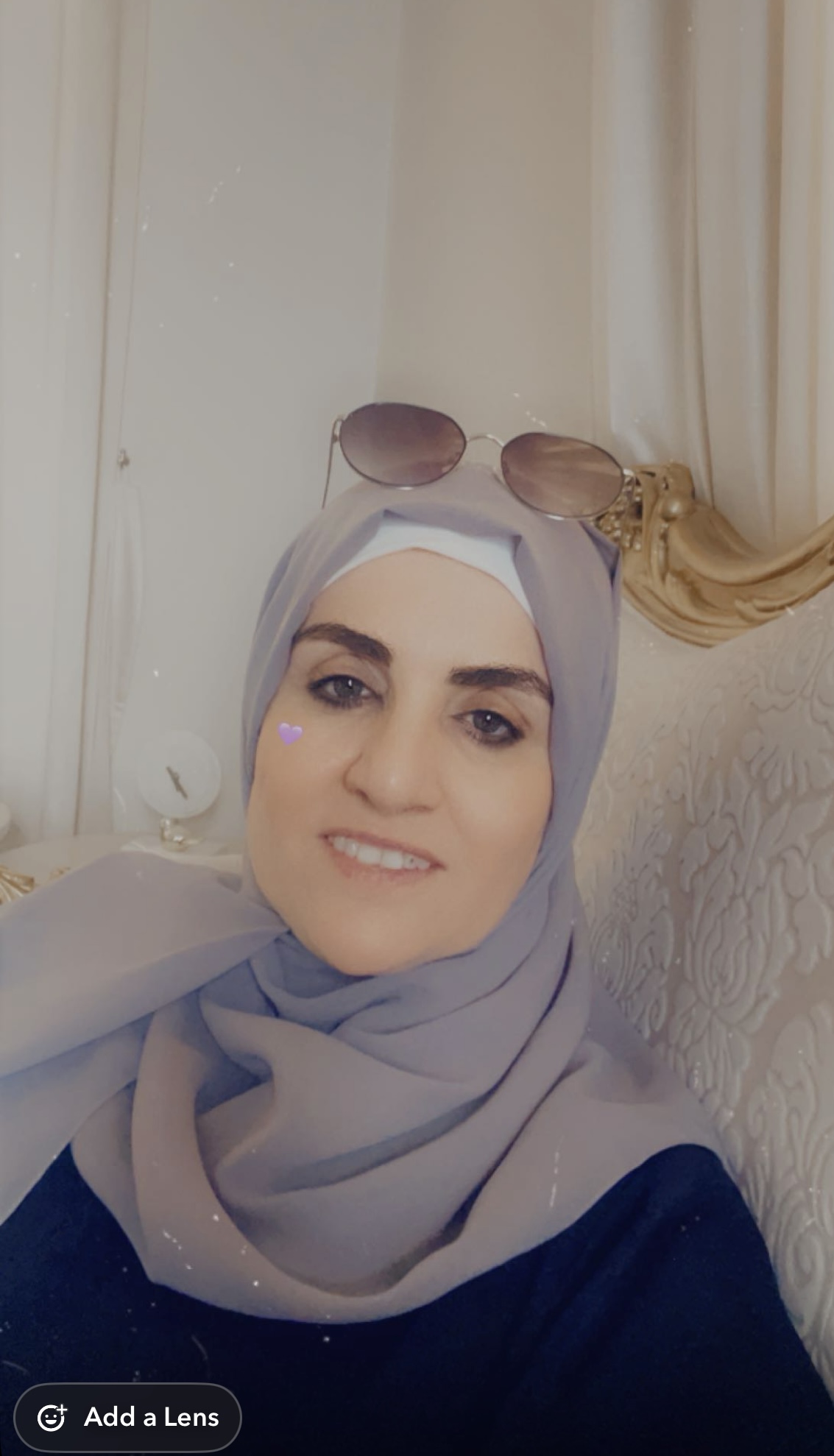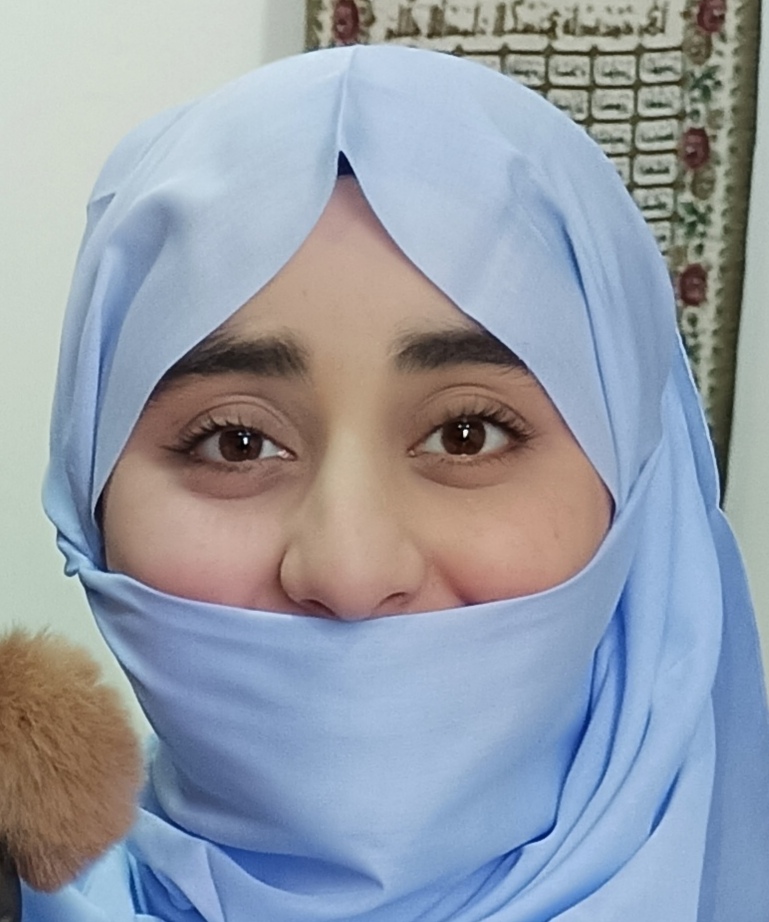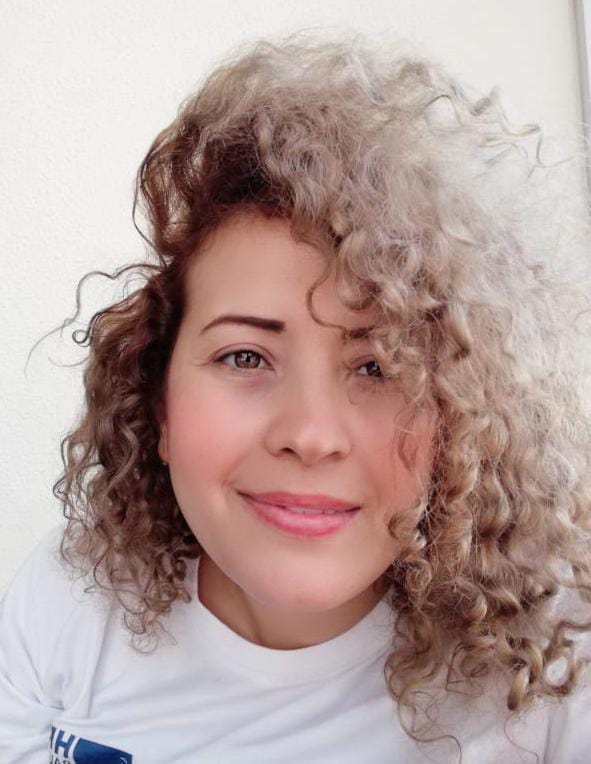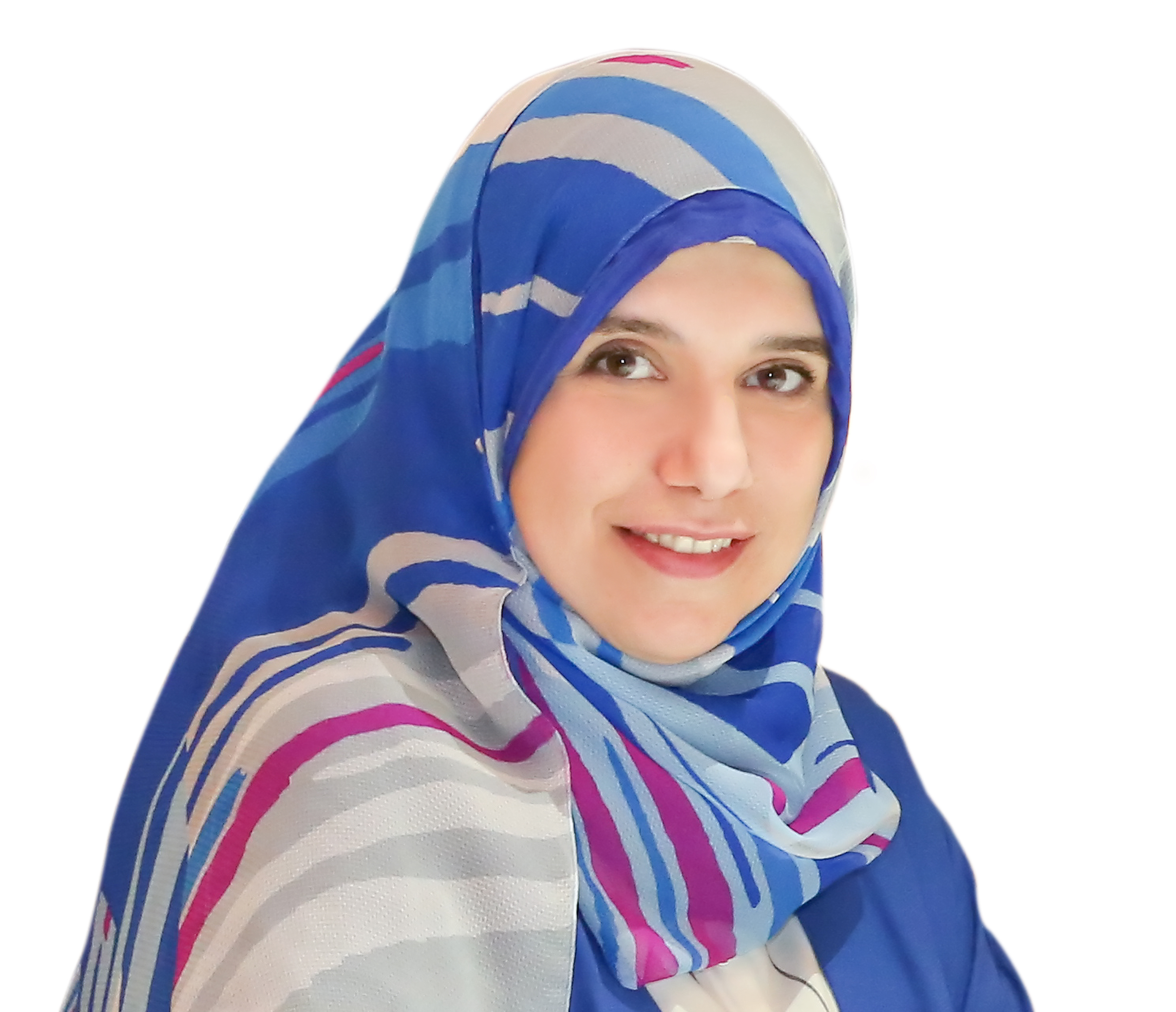Learn Arabic faster with masterstudy
Browse real tutors who specialize in everything from beginner basics to business Arabic. Choose based on your goals, budget, and learning style - all lessons are online and personalized.
My name is Rim Al-Rifai. I am an Arabic language teacher with over eight years of experience. I hold a Master's degree in Arabic Language, which has allowed me to delve deeply into the language and master modern teaching methods. Additionally, I am currently studying educational administration to further deepen my understanding of the Arabic language field. I have taught Arabic in several schools across Lebanon and have also taught Arabic online to non-native speakers, including French students
Hello, My name is Batoul Kanso. I am from Lebanon. I have +2 years' experience in online teaching. I can help you in learning Arabic, Math, English and many others
I'm here to help you! Whatever was the reason behind learning Arabic. Book a trial lesson with me and let's embark on this lovely journey together!
Hello, my name is Alissar Mahdi, and I’m from Lebanon. I’ve been a private tutor for +6 years, helping students of different ages improve their skills. My approach is flexible and fun, but strict when needed to ensure progress. I’m passionate about making learning enjoyable and tailored to each student’s needs.
Hello my Name is Marc
Mar7aba! ? I'm Andie! I was born & raised in Lebanon ??, & I'm thrilled to be part of your Lebanese Arabic learning journey! My tutoring experience & deep passion for teaching Arabic have been vital in helping over 100 students succeed on Preply. I am dedicated to making your language learning experience enjoyable, interactive, & personalized just for you! In my spare time, I enjoy singing ?, dancing ?, & acting ?!! My educational background includes a Bachelor’s degree in Translation & Interpretation, complemented by certifications in Teaching Arabic as a Foreign Language (TAFL) & Preply Language Teaching Certificate. I employ a communicative & interactive teaching approach, emphasizing practical skills & cultural insights. This ensures you not only grasp the language effectively but also develop a profound appreciation for Lebanese culture. What to Expect: ? Totally personalized lessons that match your pace & interests. ? Fun activities to boost your speaking, reading, & writing skills. ? Insights into Arabic culture that go beyond textbooks. ⏰ Flexibility! Your schedule is important, so let's find times that work for you. I'm here to support you whether you're preparing for a trip to Lebanon, connecting with Lebanese friends & family, or simply exploring the rich culture & language. Let's take the first step together towards mastering Lebanese Arabic! ?
"My lessons are interactive, personalized, and designed to keep you motivated while making real progress. I work with students of various levels, including those with special needs, adapting each session to fit individual needs and pace, and I’m here to support you every step of the way.
To seek a challenging position in the organization, where I can apply my education, training and experience while gaining exposure to a wide range of personal, career and professional development.
Are you ready to unlock the beauty of the Arabic language? Whether you're a beginner or looking to sharpen your skills, now is the perfect time to start learning with me! Learn to speak, read, and write Arabic with confidence
My approach blends structured pedagogy with real-world relevance, ensuring lessons are both effective and engaging. Why Choose Me? - 4+ years teaching languages effectively - Custom lessons for each student’s needs - Real-world focus – learn practical skills fast - Patient & encouraging – builds confidence - Proven results in exams, work, travel prep - Makes learning fun with engaging methods I help students actually use the language – not just study it. Let’s achieve your goals together!
Dedicated tutor committed to empowering learners to achieve fluency and confidence in English and Arabic through engaging and interactive lessons.
"Hello! , I’m Zeinab, and I’m here to make learning a fun, creative, and supportive experience for everyone, no matter how you learn best!" I believe learning never stops, especially for teachers. To become better at what I do, I will: Take part in training and workshops that help me learn new ways to teach, especially for adults and students with ADHD or learning difficulties. Use different teaching methods to make sure every student learns in a way that works best for them. Keep up with the latest ideas and research in education so I can bring the best techniques into my classroom.
Marhaba! My name is Celine and I'm a seasoned Levantine Dialect and Modern Standard Arabic Instructor for speakers of other languages. Over the course of my career, I've worked with students from different levels, backgrounds, and ages. My lessons are usually infused with laughter and cultural references. My passions include film, poetry, music, literature, theater and photography. I adapt my teaching style and material depending on my students' needs and goals. Flexibility is to language teaching what consistency is to language learning. Yallah, are you ready to take up the challenge?
Arabic Conversation Mistakes Beginners Make (And How to Fix Them)
Learning Arabic is exciting — but let’s be honest: it’s easy to get stuck or second-guess yourself, especially when speaking. Many beginners fall into the same traps: wrong word order, overusing formal phrases, or freezing mid-conversation. In this blog, we’ll walk you through the most common mistakes learners make in Arabic conversations, explain why they happen, and show you how to fix them with real examples — just like we do inside MasterStudy.
Daily Arabic Speaking Prompts to Build Fluency Fast
Want to speak Arabic faster? You don’t need more grammar rules — you need to speak every day. One of the easiest ways to do that is with daily conversation prompts: short, real-life questions and topics that help you think in Arabic, speak naturally, and build confidence over time. In this blog, you’ll find a ready-to-use list of speaking prompts designed for beginners and intermediate learners — the same kind of daily practice we use inside MasterStudy.
From Memorizing to Speaking: How to Actually Use Arabic in Conversation
You’ve studied the vocabulary. You’ve memorized the rules. But when it’s time to speak Arabic… your mind goes blank. That’s because knowing words isn’t the same as using them. To truly speak Arabic fluently, you need to shift from passive memorization to active communication. In this blog, we’ll show you how — step by step — using the same real-world speaking framework taught at MasterStudy.
The Power of Listening First: How to Improve Your Arabic Speaking Through Input
If you’re struggling to speak Arabic, the solution might not be to speak more — it might be to listen better. Just like babies learn by listening before talking, language learners build fluency by hearing the language over and over — in real, natural form. In this blog, you’ll learn how to improve your Arabic speaking skills by focusing on listening first, using the same input-based strategies we use inside MasterStudy.
20 Arabic Expressions That Make You Sound Like a Native
Want to go from “studying Arabic” to sounding like you’ve actually lived it? Then you need more than correct grammar — you need real expressions that native speakers use in everyday conversations. In this blog, we’ve collected 20 common Arabic phrases that help you speak more naturally, express emotion, and connect faster — just like a local. These are phrases you’ll hear on the street, in cafés, and in real chats — and they’re exactly the kind of language we teach inside MasterStudy.
How to Learn Real-Life Arabic Vocabulary by Topic (Not by Translation)
If you’ve ever learned 50 random Arabic words and still couldn’t hold a conversation… you’re not alone. The key to speaking Arabic confidently isn’t memorizing word lists — it’s learning vocabulary by topic that matches your real-life needs. In this blog, we’ll show you how to organize your Arabic learning around practical themes, build sentence-based vocabulary, and speak more naturally — using the same conversation-focused system we apply inside MasterStudy.
Learn Arabic Online for Beginners: Your Step-by-Step Guide to Get Started
Introduction Why Arabic is a great language to learn The benefits of learning online with MasterStudy Why Arabic? Spoken by over 400 million people Useful for travel, business, and culture A growing demand in global communication Why Learn Arabic Online with MasterStudy? Learn at your own pace Access to native tutors Flexible scheduling and interactive lessons Beginner Topics You’ll Cover Arabic alphabet and pronunciation Basic greetings and everyday vocabulary Simple grammar rules and sentence structure Tips for New Learners Start small and stay consistent Practice speaking from day one Don’t worry about mistakes — they're part of learning How to Get Started with MasterStudy.ai Create your account Choose your tutor Begin your personalized Arabic journey Final Thoughts Encouragement to take the first step Reminder that progress happens one lesson at a time
Weekly Arabic Conversation Challenges to Build Your Speaking Flow
If you want to speak Arabic fluently, there’s one thing that matters more than anything else: consistency. The best way to stay consistent? Set small, clear challenges every week that get you speaking. In this blog, we’ll give you a 4-week Arabic conversation challenge plan — designed to help you practice real-life speaking in just 10–15 minutes a day. These challenges are flexible, fun, and follow the same approach we use at MasterStudy to keep learners progressing with purpose.
How to Build Confidence Speaking Arabic (Even If You’re Shy)
You’ve learned the words. You’ve practiced the phrases. But when it’s time to actually speak Arabic… you freeze. Sound familiar? Speaking a new language takes more than vocabulary — it takes confidence. And the good news is, confidence can be built like any other skill. In this blog, you’ll learn how to overcome hesitation, fear of mistakes, and shyness through simple conversation techniques — the same ones we use every day at MasterStudy.
From Beginner to Fluent: How to Track Your Arabic Conversation Progress
Learning Arabic isn’t about memorizing 1,000 words — it’s about using them in real conversations. But how do you know you’re improving? How can you track your progress if you’re not taking formal tests? In this blog, we’ll show you simple, clear ways to measure your growth in Arabic conversation — so you stay motivated, focused, and always aware of your next milestone. These same methods are built into the learning journey at MasterStudy.
How to Build Your Own Arabic Phrasebook for Real Conversations
Textbooks are full of long vocab lists — but how much of it do you actually use? If you want to speak Arabic confidently, the best thing you can do is build your own mini phrasebook filled with words and expressions that matter to you. In this blog, you’ll learn how to create a personal Arabic phrasebook that supports your real conversations — one that grows with you, works for your life, and is built using the same practical approach we use at MasterStudy.
Too Busy to Learn Arabic? Try This 10-Minute Daily Speaking Routine
No time? No problem. You don’t need hours a day to speak Arabic better — just a smart, focused routine you can stick to. Even 10 minutes a day is enough to build fluency, if you’re practicing the right way. In this blog, we’ll walk you through a daily 10-minute Arabic speaking routine, designed for busy learners who want real conversational progress — not endless grammar drills. These same techniques are built into the daily learning flow at MasterStudy.
How to Train Your Ear for Arabic: Listening and Speaking Go Hand in Hand
You can't have a real conversation in Arabic if you only speak — you also need to understand what's being said. But listening can be the hardest part for beginners: native speakers talk fast, use different dialects, and drop sounds in casual speech. The good news? You can train your ear to understand Arabic naturally — even if you're just starting out. In this blog, you’ll learn simple, effective ways to improve your Arabic listening and speaking together, using tools and techniques taught inside MasterStudy.
Arabic Conversation Starters for Travelers: Speak Confidently Anywhere
Traveling to an Arabic-speaking country? Whether you’re exploring markets, checking into a hotel, or ordering at a café, knowing how to start conversations in Arabic can transform your experience. You don’t need to be fluent — just confident with the right phrases. In this blog, you’ll learn practical Arabic conversation starters for common travel situations, plus cultural tips to help you connect with locals — just like what you’ll practice in MasterStudy travel-ready speaking modules.
How to Respond in Arabic (Even When You Don’t Understand Everything)
Conversations in Arabic can feel fast. Sometimes, you’ll hear a word you don’t know — or miss part of a sentence. That’s totally normal. The secret to growing your fluency is knowing how to keep the conversation going, even when you’re not 100% sure what was said. In this blog, you’ll learn practical Arabic phrases, listening tips, and survival strategies to help you respond naturally and confidently — just like we teach at MasterStudy.
Your 30-Day Plan to Start Speaking Conversational Arabic
You don’t need a year to start speaking Arabic. With the right structure, realistic goals, and smart daily practice, you can start holding basic conversations in just 30 days. The key is focusing on real-life language — not grammar-heavy lessons or endless vocab lists. In this blog, we’ll give you a day-by-day Arabic conversation plan designed for beginners. It’s simple, practical, and built on the same techniques we use at MasterStudy: speaking early, repeating often, and using language in context.
10 Must-Know Arabic Questions to Start Any Conversation
If you want to have real conversations in Arabic, the best place to start isn’t with perfect grammar — it’s with questions. A well-placed “how are you?” or “where are you from?” can open the door to friendly, flowing dialogue — even if you’re a beginner. In this blog, we’ll walk you through the 10 most useful Arabic questions for everyday conversation. Learn how to say them, understand them, and reply with confidence — just like we teach in MasterStudy.
How to Practice Conversational Arabic When You’re Alone
No language partner? No problem. You don’t need a native speaker beside you to build real conversational skills in Arabic. In fact, many learners make great progress by practicing on their own, using smart, consistent techniques that develop speaking, listening, and thinking in Arabic — without needing a second person. In this blog, we’ll show you practical ways to practice conversational Arabic by yourself, based on the same learning strategies used inside MasterStudy.
5 Common Mistakes Beginners Make in Arabic Conversations (And How to Avoid Them)
Starting to speak Arabic is exciting — but also a bit intimidating. If you're like most learners, you’re worried about making mistakes, sounding awkward, or getting stuck mid-sentence. The good news? Everyone makes mistakes, and most are easy to fix. In this blog, we’ll walk through the 5 most common mistakes Arabic learners make in conversation, and give you simple strategies to correct them — all based on what we teach at MasterStudy to help you speak clearly and confidently.
Sound Natural in Arabic: Conversation Tips for Beginners
You’ve learned a few phrases, maybe even held a simple conversation — but something still feels too “textbook.” That’s because real conversations go beyond grammar and vocabulary. They have rhythm, emotion, and natural flow. In this blog, you’ll learn how to sound more like a native speaker using common expressions, filler words, and tone — even as a beginner. These simple conversation tricks will help you speak Arabic with confidence and authenticity, just like what we focus on inside MasterStudy.
Real Arabic Conversations You Can Practice Today (Beginner Speaking Guide)
The fastest way to learn Arabic? Start using it — in real conversations. You don’t need to be fluent or memorize dozens of grammar rules to start speaking. You just need a few solid conversation templates, basic vocabulary, and the courage to try. In this blog, we’ll walk you through practical Arabic dialogues, the kind you can start practicing right away — even if you’re a complete beginner. This is exactly how we teach inside MasterStudy: clear phrases, real-life situations, and instant speaking confidence.
How to Learn Conversational Arabic: Speak Naturally from Day One
You don’t need to master grammar or memorize hundreds of words before you start speaking Arabic. In fact, the fastest way to become confident is by learning how to hold real conversations from the very beginning. Whether you're traveling, working, or simply want to connect with Arabic speakers, focusing on conversational Arabic helps you sound natural and stay motivated. In this blog, we’ll show you how to build strong speaking skills through practical methods, must-know phrases, and smart practice strategies — just like we teach in MasterStudy.
Essential Arabic Vocabulary for Beginners (Organized by Topic)
Learning Arabic as a beginner is easier when you focus on the words you’ll actually use. The fastest way to grow your vocabulary is by learning it in themes — categories that match everyday situations like food, family, places, and emotions. In this blog, you’ll get a clear list of the most important Arabic vocabulary by category, with simple examples to help you start using them right away — just like we do inside MasterStudy.
How to Introduce Yourself in Arabic (Step-by-Step for Beginners)
Introducing yourself is the first step in any language — and in Arabic, it’s easier than you think. Whether you're starting a class, meeting someone new, or practicing with a tutor, this blog will guide you through the exact words and phrases you need to introduce yourself confidently in Arabic. We’ll break it down step by step, just like we do inside MasterStudy.
How to Talk About the Weather and Seasons in Arabic (Beginner Vocabulary Guide)
Talking about the weather is one of the easiest ways to start a conversation — and in Arabic, it’s a great opportunity to learn everyday vocabulary. Whether you’re describing today’s forecast or your favorite season, this blog will show you how to express yourself clearly with simple Arabic words and phrases. It’s the kind of real-world language you’ll practice in every beginner lesson at MasterStudy.
Describe Your Daily Routine in Arabic (Step-by-Step for Beginners)
Talking about your daily routine is one of the best ways to practice Arabic. It helps you use essential verbs, time expressions, and sentence patterns in real-life context. Whether you’re introducing yourself to a tutor or journaling your day, this blog will show you how to talk about your daily life in Arabic, one sentence at a time — just like you’ll learn inside MasterStudy.
How to Use Arabic in a Café or Restaurant (Beginner Phrases You’ll Actually Use)
Whether you're traveling, living abroad, or practicing Arabic locally, one of the most useful skills is knowing how to order food and drinks in Arabic. From greeting the waiter to asking for the bill, these are phrases you’ll use again and again. In this blog, we’ll teach you the essential Arabic vocabulary and sentence patterns to feel comfortable in any café or restaurant — the same practical expressions we use in MasterStudy’s real-life conversation lessons.
Arabic Small Talk for Beginners: Break the Ice with Confidence
Small talk is how conversations begin — whether you're meeting someone new, chatting with a colleague, or just being polite at a café. In Arabic, small talk follows certain patterns that are easy to learn and very useful. In this blog, you’ll discover beginner-friendly Arabic phrases and sentence starters to help you start and maintain casual conversations — the same way we teach real-world communication in MasterStudy.
How to Describe People in Arabic: Looks, Personality, and Relationships (Beginner Guide)
Being able to describe people is one of the most useful skills in any language — and Arabic is no exception. Whether you're introducing a family member, talking about a friend, or describing someone in a story, you'll need the right words for appearance, personality, and relationships. In this blog, you'll learn beginner-friendly Arabic words and sentence patterns to describe people naturally — the same way we teach them at MasterStudy.
Arabic Sentence Patterns You Can Use in Any Conversation (Beginner Essentials)
Arabic can feel overwhelming when you try to build perfect sentences from scratch. But here’s a secret: you don’t have to. Just like in English, certain sentence patterns repeat across conversations — once you master a few of them, you can talk about almost anything. In this blog, we’ll show you the most useful Arabic sentence structures for beginners, plus how to adapt them with your own vocabulary. These patterns are the foundation of how we teach inside MasterStudy.
Daily Habits to Learn Arabic Faster (Even If You’re Busy)
You don’t need hours a day to learn Arabic — just a few smart habits you can repeat consistently. Whether you have 5 minutes in the morning or 15 before bed, small daily actions build real fluency over time. In this blog, we’ll share easy, effective Arabic learning habits that beginners can stick to — even with a packed schedule. These same routines are built into how we teach at MasterStudy.
How to Talk About Your Weekend Plans in Arabic (Beginner Conversation Guide)
Talking about your weekend is one of the easiest ways to practice Arabic in everyday life. Whether you're telling a friend what you’ll do, asking someone about their plans, or writing a short diary entry — these are real conversations that build confidence and vocabulary. In this blog, we’ll show you how to express your weekend plans in Arabic with clear sentence patterns and useful words — the same way we teach them at MasterStudy.
Arabic Phrases for Texting and Everyday Chat (Beginner’s Social Guide)
Want to chat in Arabic like native speakers do? Texting and casual conversations are full of short, expressive phrases that aren’t always found in textbooks. Whether you're messaging a friend, commenting on a post, or replying on WhatsApp, this blog will teach you the most common Arabic chat phrases — and how to use them naturally. MasterStudy helps you learn these in real context so you sound authentic from day one.
How to Talk About Your Feelings in Arabic (Beginner Guide to Expressing Emotions)
Learning how to talk about your emotions is a big step toward speaking any language naturally — and Arabic is no different. Whether you’re happy, tired, excited, or frustrated, being able to express how you feel helps you connect with others and communicate more authentically. In this blog, you’ll learn simple words and phrases to describe your feelings in Arabic — all part of the conversational learning method used at MasterStudy.
Arabic Vocabulary You’ll Actually Use Every Day (Beginner Essentials)
Not all words are created equal — especially when you’re just starting Arabic. Some vocabulary is nice to know… but some is essential. In this blog, we’ll focus on the Arabic words and phrases you’ll hear and use every single day — whether you're greeting someone, ordering food, or talking about your routine. These are the exact words MasterStudy teaches early on, so you start speaking with confidence right away.
How to Describe Your Surroundings in Arabic (Beginner-Friendly Vocabulary and Phrases)
One of the most effective ways to learn Arabic is by describing what’s around you — your room, your home, your street, even the weather. It connects Arabic to your daily life and helps you remember vocabulary naturally. In this blog, you’ll learn how to describe your environment using easy words and beginner-level sentences, just like we teach at MasterStudy.
Feeling Stuck? How to Stay Motivated While Learning Arabic (Beginner Edition)
Learning Arabic is exciting… until it isn’t. Every learner hits a wall — you forget a word, struggle with grammar, or feel like you're not making progress. That’s normal. The key isn’t avoiding challenges — it’s knowing how to stay motivated when they come. In this blog, you’ll find practical, honest tips for staying consistent and positive while learning Arabic — even on tough days. These same strategies are built into the experience at MasterStudy.
How to Practice Arabic by Yourself: Solo Study Tips for Beginners
No tutor? No problem. You can still make real progress in Arabic — even if you’re learning on your own. The key is using the right methods, tools, and routines that keep you engaged and consistent. In this blog, we’ll share practical tips for solo Arabic learners, including daily habits, speaking tricks, and how to make your self-study sessions more effective with help from MasterStudy.
Arabic for Daily Life: How to Talk About Your Family, Food, and Hobbies (Beginner-Friendly Guide)
If you’re learning Arabic, chances are you want to do more than memorize grammar — you want to talk about your life. The fastest way to start real conversations is by learning how to speak about your family, what you eat, and what you enjoy doing. In this blog, you’ll learn simple phrases, beginner vocabulary, and sentence examples to express your daily life — all taught the same way inside MasterStudy.
How to Start Thinking in Arabic (Instead of Translating in Your Head)
One of the biggest breakthroughs in language learning is when you stop mentally translating — and start thinking in the language itself. For Arabic learners, this can feel challenging at first. But with the right techniques, it becomes natural over time. In this blog, we’ll show you how to train your brain to think in Arabic — even as a complete beginner — using methods we apply every day at MasterStudy.
Arabic Questions for Everyday Use — and How to Answer Them (Beginner’s Toolkit)
If you can ask a question — and understand the answer — you can start a conversation in any language. Arabic is no different. Mastering a few simple question formats gives you the power to navigate daily life, meet new people, and engage with Arabic speakers from the start. In this blog, you’ll learn the most common Arabic questions for beginners, plus natural ways to reply — just like we teach inside MasterStudy.
Essential Arabic Travel Phrases for Beginners | MasterStudy.ai
Learn key Arabic phrases for travel, from airports and taxis to hotels. MasterStudy.ai offers practical, real-life Arabic lessons with pronunciation support for confident communication.
Arabic Grammar for Beginners: What You Really Need to Know (And What You Can Ignore for Now)
Arabic grammar has a reputation for being hard — but as a beginner, you don’t need to know everything to start speaking. In fact, focusing on just a few key concepts can help you build confidence and communicate effectively from day one. In this blog, we’ll break down the essential Arabic grammar rules you need to know now — and what you can skip until later. This is exactly how we structure beginner lessons in MasterStudy.
Learn Arabic Through Short Stories and Dialogues: A Beginner’s Fun and Effective Method
Tired of memorizing word lists and grammar rules? There’s a better way to learn Arabic — one that’s natural, fun, and proven to work: stories and dialogues. This method helps beginners understand how real Arabic sounds and flows in everyday situations. In this blog, you’ll learn how short stories can build your vocabulary, improve listening, and boost speaking skills — just like we do in MasterStudy.
Essential Arabic for Shopping: Prices, Questions, and Everyday Transactions
Whether you’re visiting an Arabic-speaking country or practicing real-life language skills, shopping is one of the best ways to use Arabic in action. From asking “How much?” to understanding numbers and making polite requests, this blog covers all the key phrases beginners need. With MasterStudy, you’ll learn how to handle these conversations naturally and confidently.
Arabic Phrases You’ll Hear Every Day — and How to Respond (Beginner Guide)
When you start learning Arabic, you’ll quickly notice that native speakers use certain phrases all the time — greetings, questions, compliments, and polite expressions. If you want to feel confident in real conversations, you need to recognize these phrases and know how to reply. In this blog, we’ll show you the most common Arabic expressions beginners should learn — and how to respond to them naturally, just like we teach inside MasterStudy.
5-Minute Arabic Practice Routines for Beginners (That Actually Work)
Think you don’t have time to learn Arabic? Think again. You don’t need an hour a day to make progress — you just need 5 minutes and a plan. In this blog, we’ll give you quick, effective Arabic practice routines for beginners that fit into any schedule. Whether you're at home, on a break, or commuting, these mini-practices will keep your Arabic sharp — with support from MasterStudy smart learning tools.
How to Describe Your Day in Arabic: A Beginner’s Step-by-Step Guide
If you’re looking for a practical way to practice Arabic every day, start by describing the day you’re already living. Talking about your daily routine helps reinforce useful vocabulary, sentence structure, and verbs — all while making Arabic part of your life. In this blog, we’ll show you how to describe your day in Arabic using easy phrases, real examples, and guided support from MasterStudy.
Arabic Sentence Starters for Beginners: Easy Ways to Begin Speaking Right Away
Building your first Arabic sentences can feel overwhelming — especially if you’re unsure where to start. The good news? You don’t need to master grammar to begin expressing yourself. With just a few sentence starters, you can begin speaking confidently from day one. In this blog, we’ll show you beginner-friendly Arabic sentence frames you can use instantly — all part of the natural, conversation-based approach inside MasterStudy.
How to Build Arabic Vocabulary as a Beginner (Without Memorizing Word Lists)
If you're just starting out with Arabic, you’ve probably been told to memorize vocabulary lists. But that’s not how real learners succeed. The fastest way to build a strong vocabulary is to learn words in context, use them in your daily life, and repeat them naturally. In this blog, we’ll show you beginner-friendly techniques to grow your Arabic vocabulary — just like we do inside MasterStudy.
